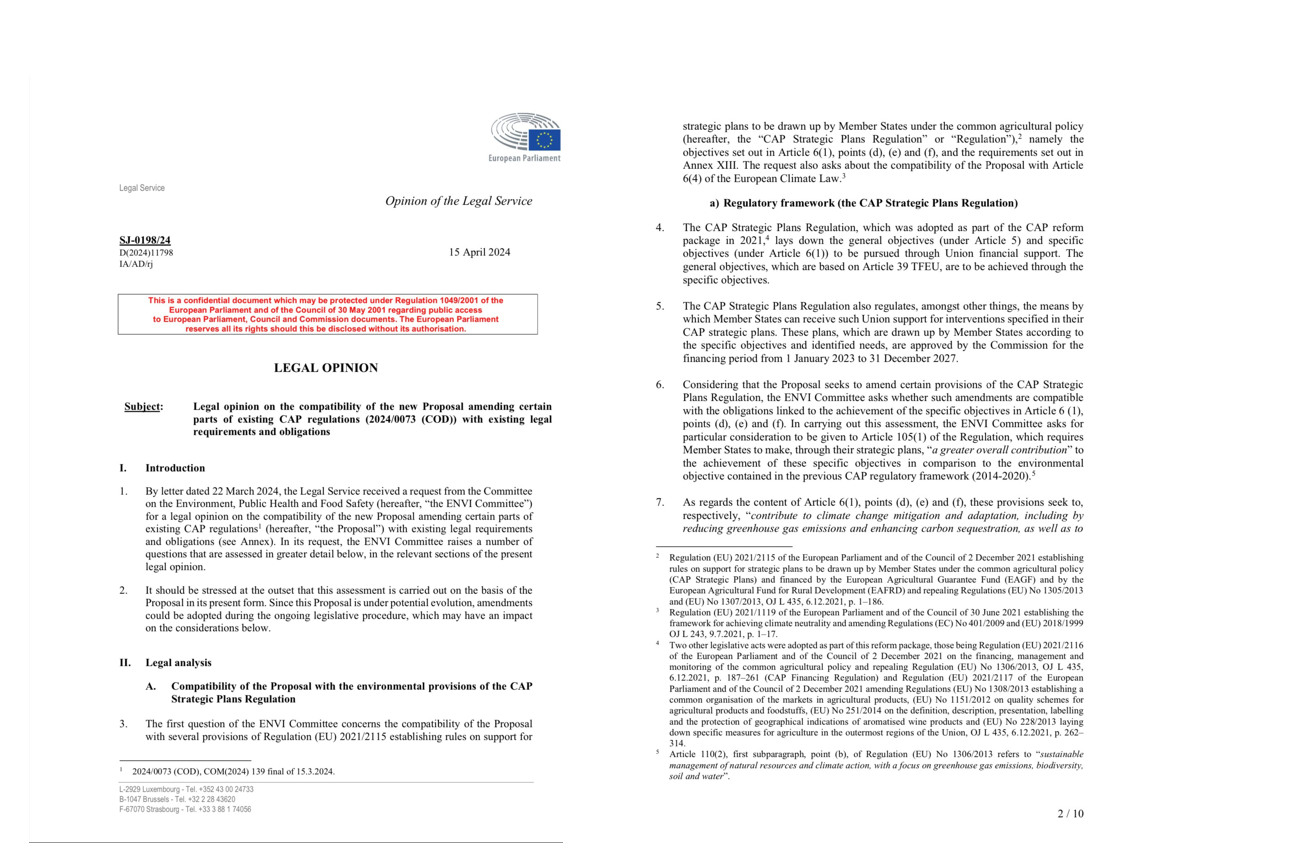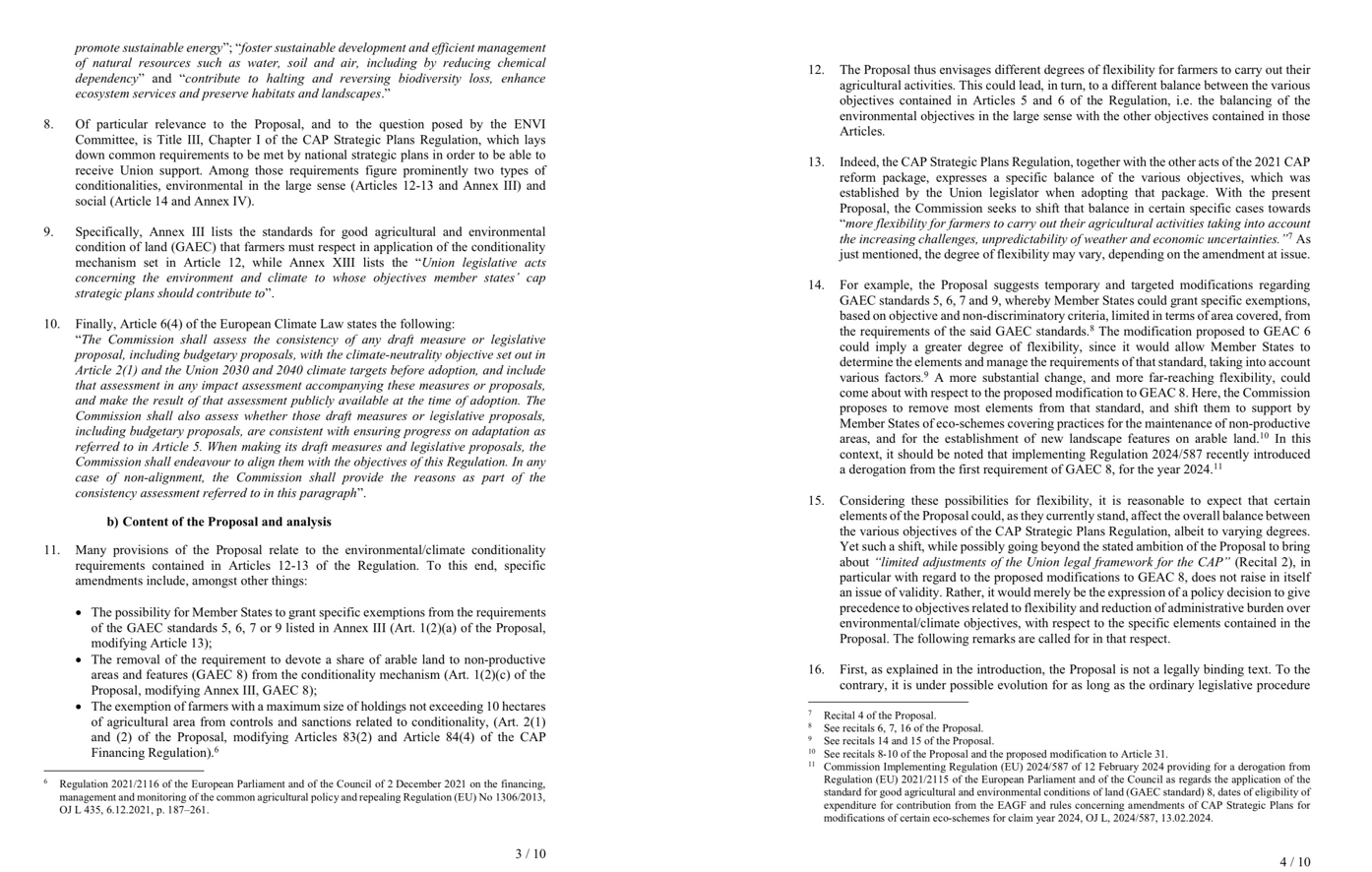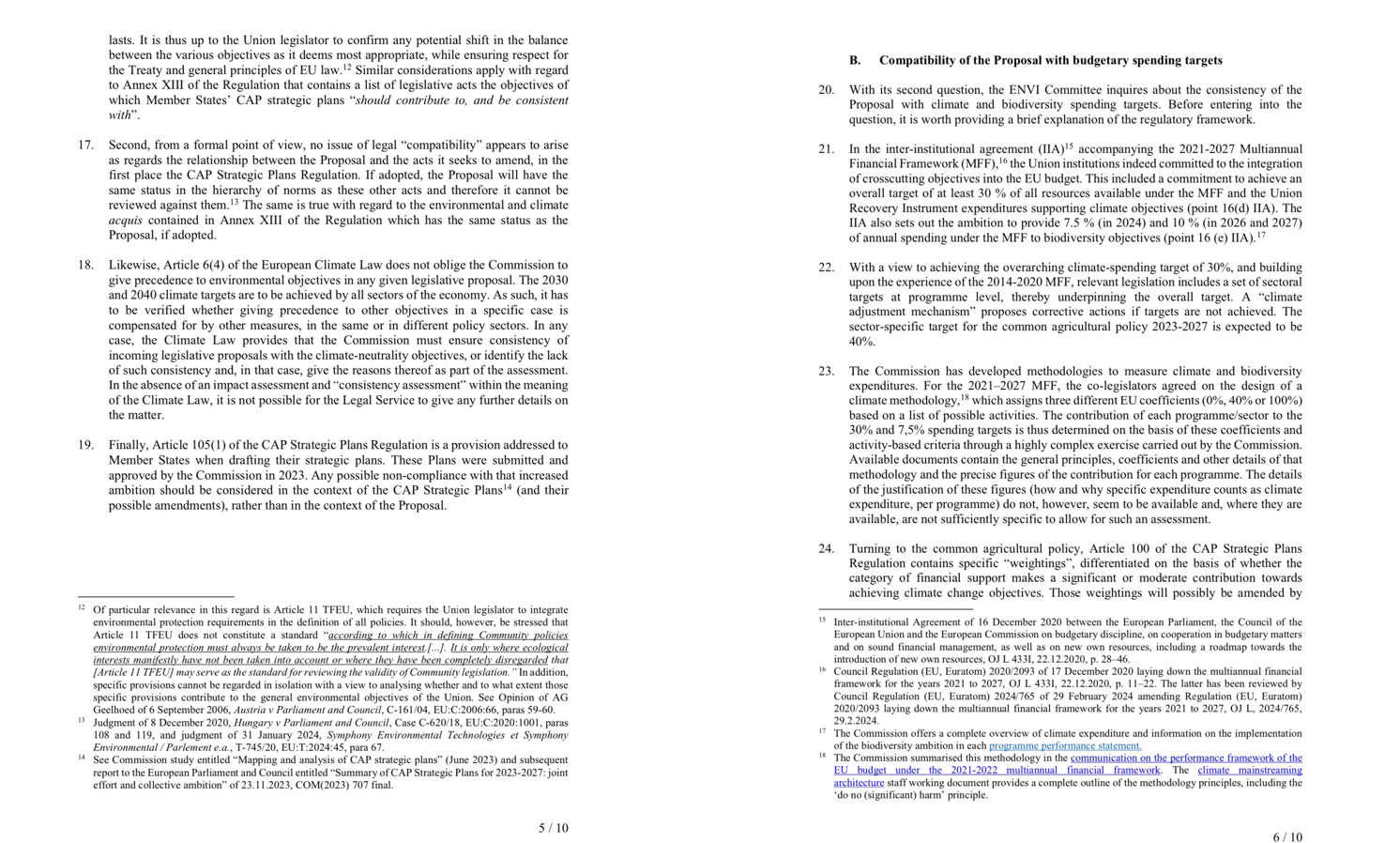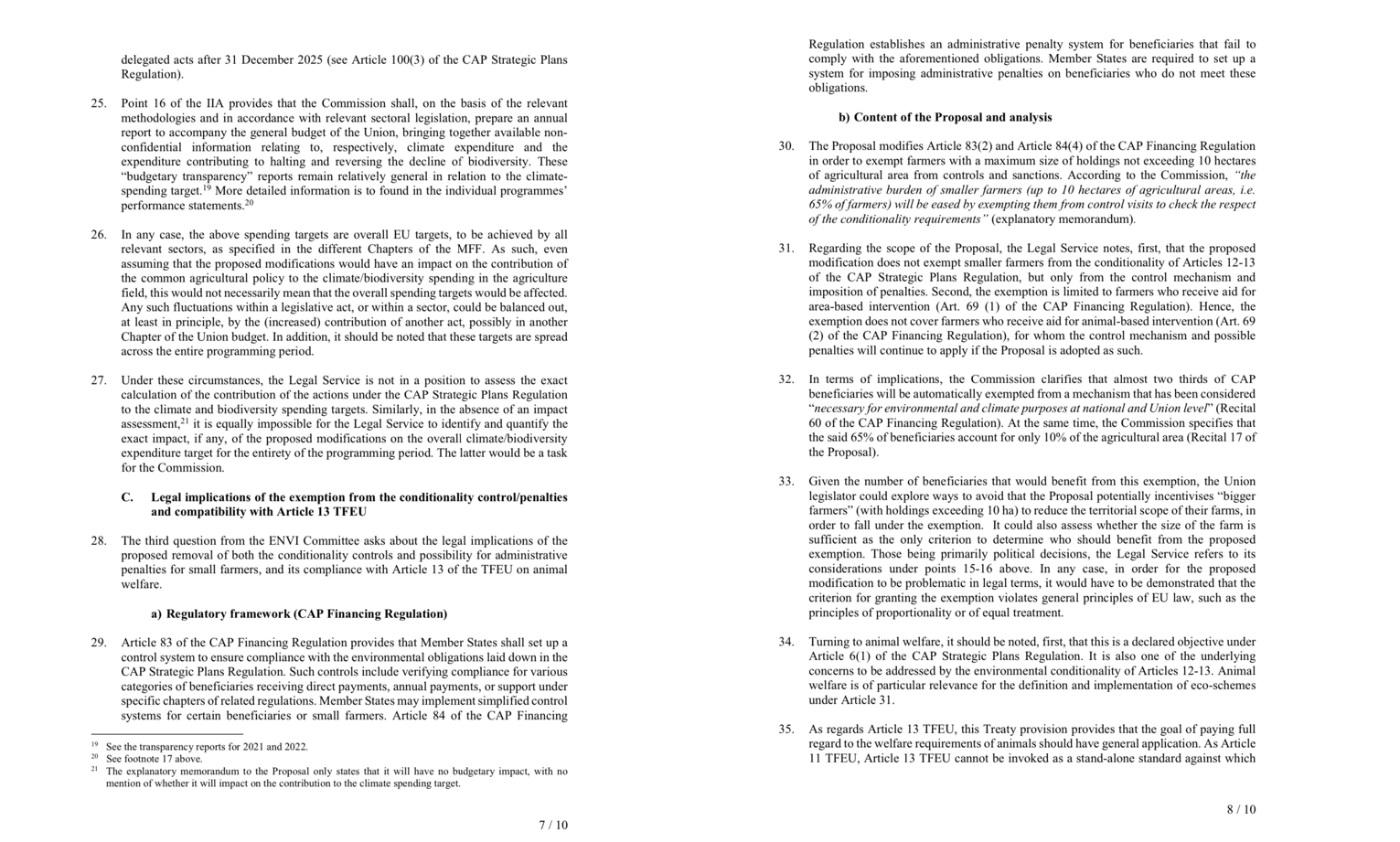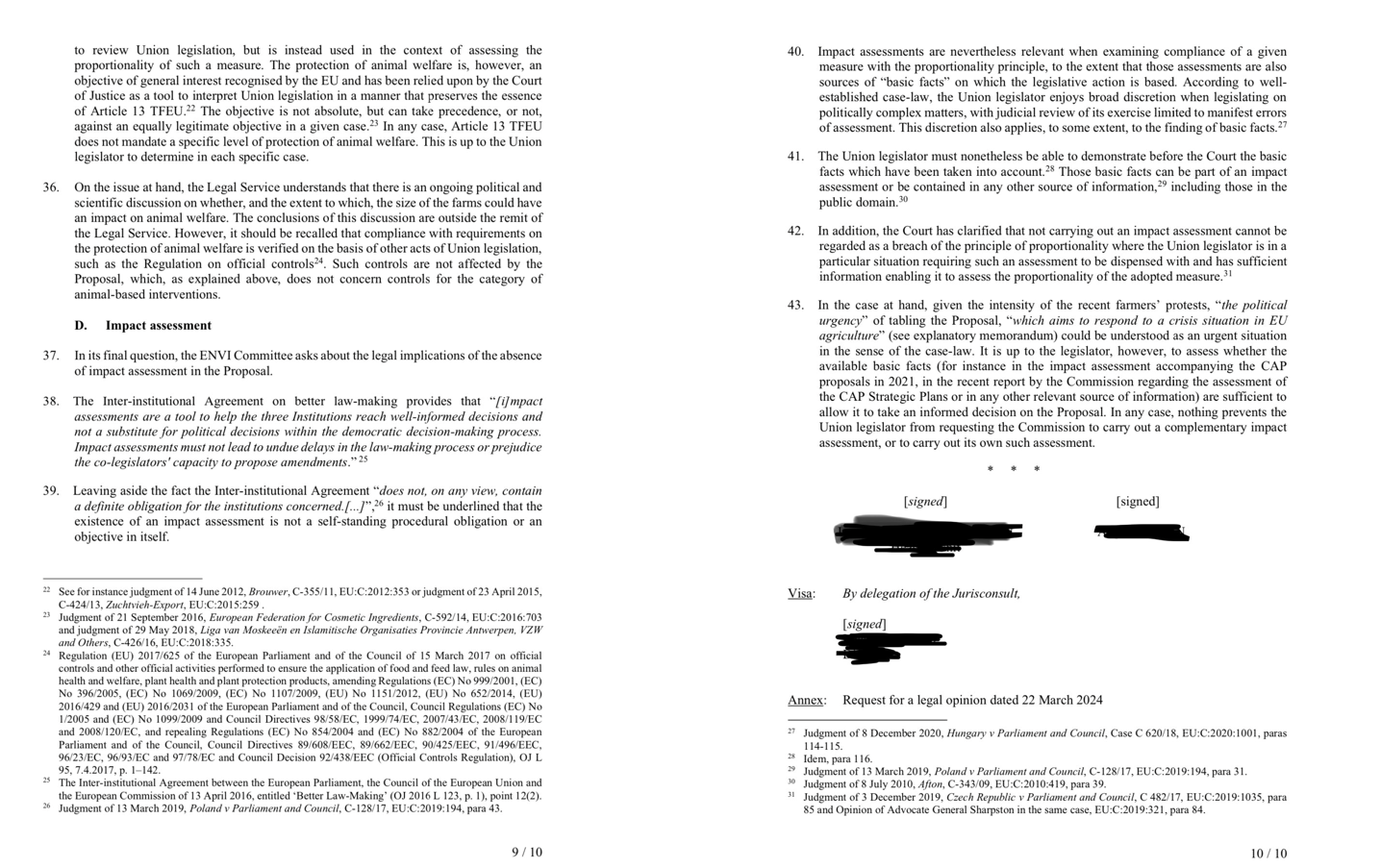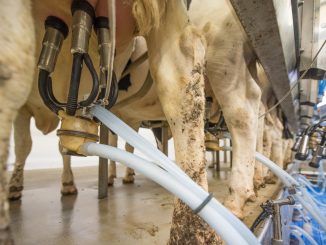
When the Commission proposed re-opening the EU’s Common Agricultural Policy in efforts to placate protesting farmers, stakeholders were quick to question the legitimacy of the process, with some even labelling the move “unlawful”, “undemocratic” and “breaking EU climate Law”. Now, the European Parliament’s legal service has weighed in on the process. So what is the verdict? And what does it mean for the future direction of the process? Natasha Foote digs in.
First things first – What’s this proposal all about?
The proposal aims to lighten the administrative load on farmers as a response to the continuing protests against what is seen by protestors as excessive regulation, unfair pricing and trade competition.
While the protests have only partially been about environmental regulations, it’s this area which has seen the swiftest action. A big part of this is the proposed downgrading of mandatory environmental requirements in the Common Agricultural Policy (CAP) to voluntary, as well as more power shifted into the hands of member states.
These are five of the nine CAP conditionality rules, the GAECs (Good Agricultural and Environmental Condition) and a small farmer (under 10 ha) exemption from checks.
The move has been welcomed by one half of the farmers’ groups consulted – EU farmers’ association COPA-COGECA and young farmers’ association CEJA. But it has been lambasted by small farmers’ association European Coordination Via Campesina and organic association IFOAM EU, both of which consider their voices have not been heard in the consultation process. (Fuller analysis here and below)
Parliament Pushes Full Steam Ahead to Dismantle CAP’s Green Rules
Read/Download CAP Regulation (EU) 2021/2115
Read/download the Commission’s published proposal as of 15/03/24 COM(2024)139_0 (Minor changes are proposed by both the Council and Parliament to this version. A consolidated version is being voted on week of 22-25th)
Legalities
Under pressure to show a strong response at the EU level amid the looming EU elections, the Commission put forward a hasty proposal to re-open the CAP – which took over 3 years to negotiate – following a one week ad-hoc consultation, with no accompanying impact assessment.
This was justified by the urgency of the “crisis” situation. No definition was given as to what constitutes a crisis.
The question then on everyone’s lips was – is this legal? According to the leaked legal service opinion, seen by ARC, it seems that the answer is yes, at least for the most part. In the interests of transparency, we’ve reproduced the entire text at the bottom of this article.
The opinion, which is marked as ‘confidential’, assesses the proposal against EU climate and other laws. It notes that it is “reasonable to expect that certain elements of the proposal could, as they currently stand, affect the overall balance between the various objectives of the CAP Strategic Plans Regulation, albeit to varying degrees”.
But despite this, such a shift, while possibly going beyond the stated ambition of the proposal, does not “raise in itself an issue of validity”, according to the opinion.
Instead, it finds that it would “merely be the expression of a policy decision” to give precedence to objectives related to flexibility and reduction of administrative burden over environmental or climate objectives.
In order for the proposed modification to be problematic in legal terms, it would “have to be demonstrated that the criterion for granting the exemption violates general principles of EU law, such as the principles of proportionality or of equal treatment,” the legal opinion finds.
Meanwhile, the legal service concludes that, given the intensity of the recent farmers’ protests, the political urgency of tabling the proposal “could be understood as an urgent situation in the sense of the case-law”.
Impact Assessment
On the lack of an impact assessment, the legal opinion points out that the existence of an impact assessment is “not a self-standing procedural obligation or an objective in itself”.
As such, not carrying out an impact assessment “cannot be regarded as a breach of the principle of proportionality” provided there is “sufficient information” to assess the “proportionality of the adopted measure”.
The Union legislator must “nonetheless be able to demonstrate before the Court the basic facts which have been taken into account”. It is up to the legislator, however, to assess whether the available basic facts are sufficient to allow it to take an informed decision on the proposal.
Those basic facts can be part of an impact assessment or be contained in any other source of information, including those in the public domain. The opinion suggests, for example, the impact assessment accompanying the CAP proposals in 2021 and the recent report by the Commission regarding the assessment of the CAP Strategic Plans.
Size matters
A huge part of the current Commission proposal, being rushed through the institutions at the fastest possible pace, is the exemption of 2/3 of all farmers – those under 10 hectares – from any CAP inspections
The opinion notes that, given the number of beneficiaries that would benefit from this exemption, the Union legislator “could explore ways to avoid that the proposal potentially incentivises “bigger farmers” (with holdings exceeding 10 ha) to reduce the territorial scope of their farms, in order to fall under the exemption.”
As such, it suggests it could also assess “whether the size of the farm is sufficient as the only criterion to determine who should benefit from the proposed exemption”.
What now?
The proposal will now be put to a full house vote in the European Parliament plenary session next week (22-25 April). If the Parliament’s approved text matches that of the Council, the proposal will skip the usual interinstitutional negotiations and instead be fast-tracked to adoption.
ARC2020 will keep you up to speed on the latest developments as they happen – chekc out part tweo of this two parter at the first link below.
More
Confidential Legal Advice on CAP Fast Track Uncovered – Critique of a Meek Opinion
Parliament Pushes Full Steam Ahead to Dismantle CAP’s Green Rules

